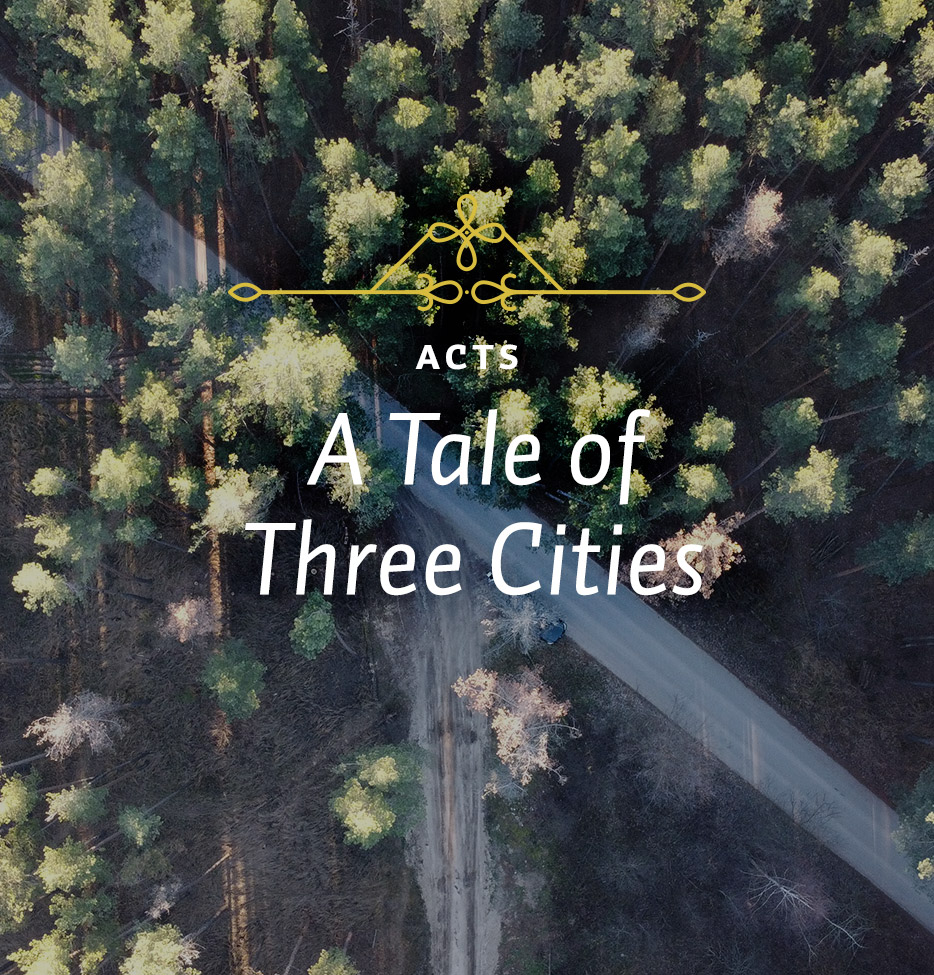I have outlined four parts to this basic ministry pattern: preaching, division, persecution, and growth. But when we come to the story of Paul’s work in Iconium, what is emphasized chiefly is the division, which ends in persecution. The division is explained carefully: “The Jews who refused to believe stirred up the Gentiles and poisoned their minds against the brothers” (v. 2).
We should not be surprised at this, of course, because the Lord Himself said this would happen. He told about a farmer and the four different kinds of ground on which his seed fell. He said that when the Gospel is thrown out like seed, sometimes it falls upon a hard path where it simply lies on the surface and the birds of the air swoop down and snatch it up. At other times, it falls on rocky soil where there is not much earth. It springs up quickly under those conditions. But as soon as the sun comes out, the sun scorches it and the plant dries up. At still other times, the Word falls upon good ground. It grows and does well. But the ground also contains weeds, and these grow up alongside the plant and eventually choke it out. There is no fruit under any of these conditions. It is only when the Word falls on good soil that it bears fruit. Sometimes it multiplies itself thirty times, sometimes sixty times, and sometimes one hundred times (cf. Matt. 13:1-9, 18-23).
When our Lord told that story the disciples did not understand it. So He explained it to them. He said that when the Word falls on the path and the birds swoop down and eat it, that is like Satan snatching the Word away from people before it has a chance to affect them. That is characteristic of the Acts 14:8-9 preaching of the Gospel in our day. The Gospel is preached. People hear it all the time. It is on the radio and television, in books, pamphlets and newspapers. Churches are everywhere. Yet there is so much of the devil’s work around that the Word is just snatched up. No sooner does it begin to be known to people than the devil snatches it away, and other things come in and take its place.
Sometimes people receive the Word, but for them it is like seed falling on rocky soil. It springs up. But as soon as life gets tough, as soon as some of the persecutions that accompany the Christian life or the hardships that accompany Christian living come, the one who has made the profession fades away and is no longer seen following after Christ.
Sometimes there are thorns, which Jesus identified as the cares of this world. They choke the new life out.
It is only in the fourth of these four cases—twenty-five percent of the time—that the Word actually falls upon good soil and is fruitful. But notice: when it falls upon good soil, soil that God has prepared, then it does spring up. It does bear fruit, and the fruit it bears lasts to the glory of God.
That is what happened in Iconium. The division is emphasized. But although there was much persecution, and undoubtedly some who at the beginning seemed to respond but later fell away, nevertheless, some of the seed fell upon soil that God had previously prepared. It took root, grew, and there was life and fruit. As a result, when they came back later, the apostles found a church established in Iconium.
Verse 6 was an important verse in the life of Sir William Ramsay. It, together with a few other verses, produced a change in his thought that brought him to a high trust in the reliability of Scripture.
Ramsay was a great classical scholar who came from Scotland. Because classical scholars liked to visit the countries they are studying, Ramsay, who was studying Acts, set out for Asia Minor, what we call Turkey. Nobody knew much about Turkey in those days. Travel was difficult. Many of the ancient sites, which particularly interested Ramsay, had been lost for centuries.
Ramsay began his research, and one of the things he investigated was the boundary line between the ancient Roman territories of Pisidia and Lycaonia which seemed, according to an ancient boundary marker, to have been between the cities of Lystra and Derbe. That could have been an incidental and somewhat unimportant matter in itself, of course. Boundaries can be anywhere at all. What should it matter? But there was a puzzle in the case of this boundary in respect to what Luke had written in Acts. We will look at this puzzle in tomorrow’s study.






